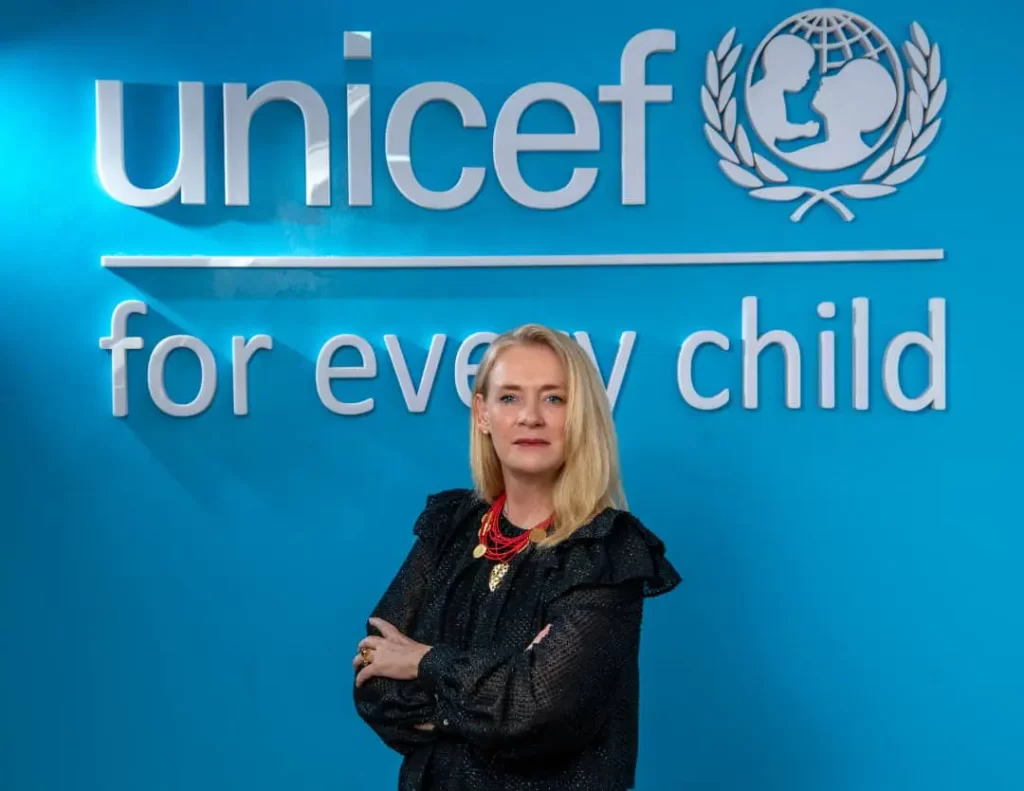The United Nations Children’s Fund (UNICEF) has raised a fresh alarm over Nigeria’s deepening child malnutrition crisis, revealing that an estimated two million children in the country are suffering from severe acute malnutrition (SAM) — the highest burden in Africa and the second highest globally.
According to a statement posted on the agency’s website on Tuesday, only two out of every 10 Nigerian children suffering from the life-threatening condition currently receive any form of treatment, leaving the vast majority without critical care.
“Nigeria has the second highest burden of stunted children in the world, with a national prevalence rate of 32 percent of children under five,” the UN agency stated.
The report paints a grim picture of child nutrition in the country, where 45 percent of deaths among children under the age of five are linked directly or indirectly to malnutrition.
UNICEF warned that the nutrition crisis is not only costing lives but is also crippling the country’s future productivity.
“Stunting, in addition to an increased risk of death, is also linked to poor cognitive development, a lowered performance in education, and low productivity in adulthood – all contributing to economic losses estimated to account for as much as 11 percent of Nigeria’s gross domestic product (GDP),” it added.
UNICEF also expressed concern over the persistently low rate of exclusive breastfeeding in the country.
Despite campaigns, only 17 percent of Nigerian infants are exclusively breastfed in their first six months — a figure that has remained stagnant for over a decade.
Equally worrying is the dietary intake of older infants and toddlers. “Just 18 percent of children aged six to 23 months are fed the minimum acceptable diet,” the agency noted.
The situation is reportedly worse in northern Nigeria, where stunting and wasting are most prevalent.
Additionally, seven percent of women of childbearing age are also suffering from acute malnutrition, further compounding the intergenerational cycle of poor nutrition and poverty.
UNICEF called for urgent and sustained action to reverse the trend, stressing the need to expand access to nutrition services and information, particularly in underserved and conflict-affected areas.
“Our goal is to ensure that women, children, and adolescents, particularly in vulnerable and deprived areas, benefit from increased access to and use of quality services and information to prevent and treat malnutrition, including in emergencies,” it stated.
Health experts and advocacy groups have long warned that unless decisive measures are taken — including increased government funding, community-level interventions, and improved maternal education — Nigeria risks an escalating public health emergency that will affect future generations.
Do you want to share a story with us? Do you want to advertise with us? Do you need publicity for a product, service, or event? Contact us on WhatsApp +2348183319097 Email: platformtimes@gmail.com
We are committed to impactful investigative journalism for human interest and social justice. Your donation will help us tell more stories. Kindly donate any amount HERE




